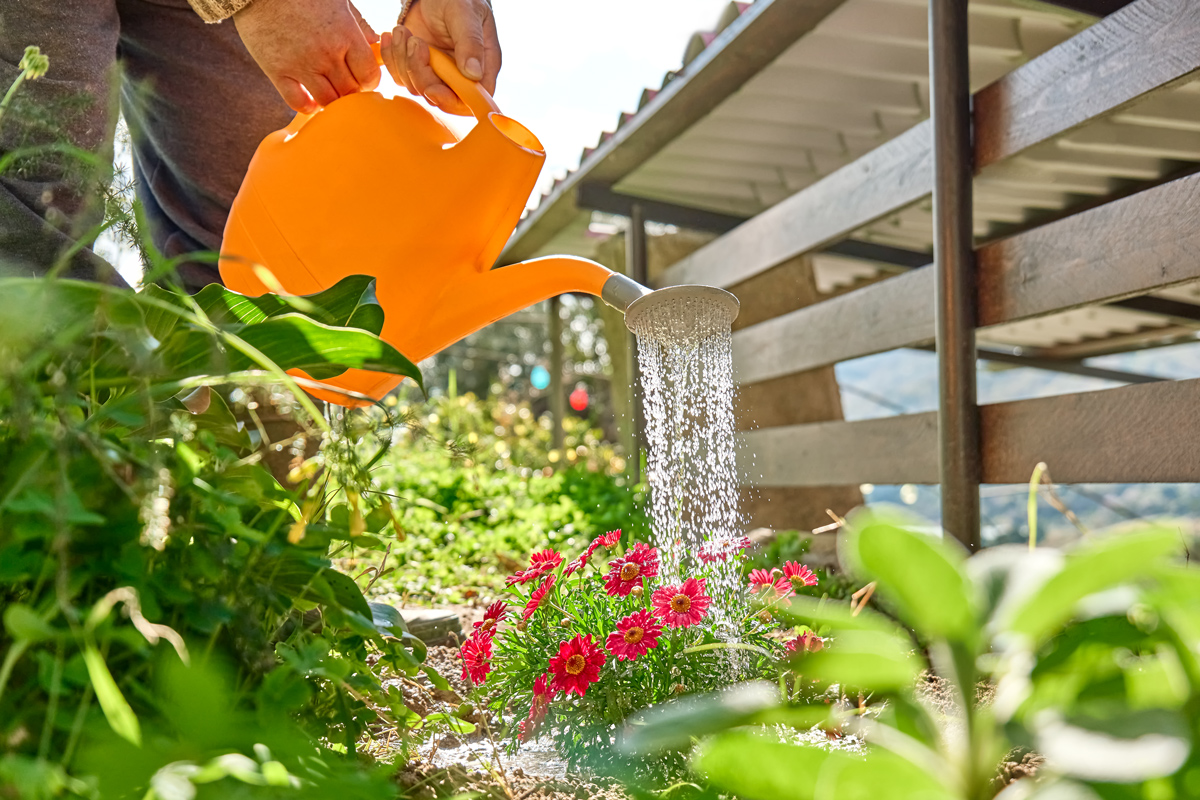🌻 Watering the Flowers, Not the Weeds in the Garden of Life
4 Strategies to Strengthen Your Self-Care and Thriving
There’s what we want. And then there’s what is.
Life is filled with beautiful flowers. And then there are the weeds. And nobody can protect us from the weeds, dry soil and rocky grounds that arise in the gardens of our lives.
There’s no fence tall enough to keep out unwanted intrusions, emotions, and experiences. I wish the story was different – there are weeds and rocks – and some of them can be quite formidable.
How do we deal with the weeds? How can we minimize the weeds when we first notice them, before they get too big or potentially destructive? And what strategies can help us notice the essential beauty, colors, and fragrances of the flowers, shrubs, and the trees?
How do we learn to take care of the gardens of our own day-to-day lives?
Sooner or later, we learn, sometimes the hard way, that nobody can do our self-care for us:
☀️ We need enough water, sunlight, and good soil to thrive.
🪴 We’re more vulnerable than we’d like to be.
💦 We can’t depend on others to do our self-care for us – we need to take care of ourselves.
🌷 We need to water the flowers, not the weeds.
Yes, my friends, there’s what we want and there’s what is. Yet in each moment we can choose how we see ourselves and the world around us (Miller, 2021). And although others can support and cheer us on, it’s on us to care for our own gardens.

What do you need for self-care? There are many pathways to self-care and thriving and here are a few:
1 – Connecting with Our Values. Our values are like our inner compass, letting us know what’s truly important to us, inviting us toward where we want to focus our energies, and offering a source for insight and motivation.
It’s so easy to get lost in the day-to-day, misplacing what really matters in the big picture of our existence. Losing touch with our values can be like watering the weeds and can cause many kinds of suffering. Conversely, planting seeds based on our values offers fertile ground for meaning and direction. The values we choose to live by are up to us. What do you truly value?
2 – Awakening and Practicing Self-Compassion. According to psychologist Kristen Neff, PhD, self-compassion involves seeing our own experiences in the light of human experiences common to us all. This shift in perspective can be life-changing – rather than labeling ourselves as ‘good’ or ‘bad,’ learning to simply accept ourselves with an open heart (2011). How would it be if you offered yourself the same kindness and caring that you would share with a good friend or loved one?
Neff writes that sometimes there’s almost no person that we may treat as badly as we treat ourselves. Yet, there are many pathways to increase self-compassion, offering ourselves the tenderness and kindness we need. One place to begin is to gently offer ourselves care, with kind words and a reassuring tone of voice (Neff, 2021, 2011; Salzburg, 2010).
“It’s OK honey, you’re OK.” When something disturbs us, we can try to be patient with ourselves. Neff recommends writing to ourselves regularly with kind, comforting words that let us know we care about ourselves. We might write in a journal or record our kind thoughts on an electronic device.
3 – Enjoying Experiences That Bring You Pleasure. There’s no formula for what different people enjoy, but this brief list offers a few examples:
Get outside in nature. Play games. Nurture your garden, whether a plant in a window or outdoors. Watch a movie or a concert. Walk with a friend or your dog. Enjoy the sun shining in through a window. Hang out with a loved one, friend, or acquaintance you enjoy. Observe children playing. Call someone you care about. Volunteer. Create art, music, or a craft. Write a poem just for fun. Cook something you enjoy. Do a random act of kindness.
4 – Putting Things into Perspective with Gratitude. Whether the day is going well or poorly, it can be helpful to remind ourselves of what we are thankful for. Even when times are tough, pausing to notice a small positive moment, experience, or event can offer us greater perspective.
What do you need for self-care in the garden of your life?
Disclaimer: This article is for informational purposes only. No content is a substitute for consulting with a qualified mental health or healthcare professional.
© 2024 Ilene Berns-Zare, LLC, All Rights Reserved
Send your comments and suggestions to Ilene!
Click here to send Ilene an email with your thoughts about this blog post.
References:
- Miller, L. (2021). The awakened brain: The new science of spirituality and our quest for an inspired life.New York, NY: Random House.
- Neff, K., (2021). Fierce self-compassion: How women can harness kindness to speak up, claim their power, and thrive. New York, NY: HarperCollins.
- Neff, K. (2011). Self-compassion: The proven power of being kind to yourself. New York, NY: William Morrow.
- Salzberg, S. (2010). The force of kindness: Change your life with love & compassion. Boulder, CO: Sounds True.
Ilene is a Featured Author on PsychologyToday!
Read her blog series Flourish and Thrive: Navigating transitions with mindfulness and resilience.

How can you take another step toward watering the flowers, not the weeds?
Tap into your strengths, purpose, and potential to flourish in life and work.
If you’d like to discuss how Ilene Berns-Zare Coaching can help you achieve your goals, contact Ilene.
Coaching with Ilene Can Help You Call Yourself to Action
Ilene Berns-Zare, PsyD, PCC, CEC, is an Executive and Personal Coach and Speaker. Ilene helps people live their best personal and professional lives by bringing mind, body, and spirit into flow with strengths, purpose, and potential. She inspires clients to find fresh perspectives and access their full potential as creative, resourceful, whole persons. Find Ilene online, set up a free discovery coaching consultation, and access free resources at https://ibzcoaching.com/.
Please share this blog with anyone who might be interested in reading it!
We would love to hear from you! We are interested in your suggestions for this newsletter, your reactions to this one, or providing more information about coaching.



